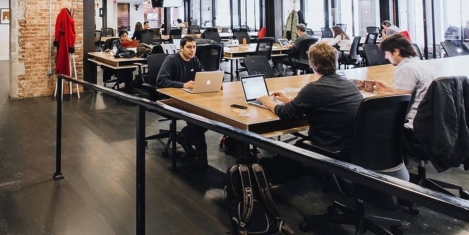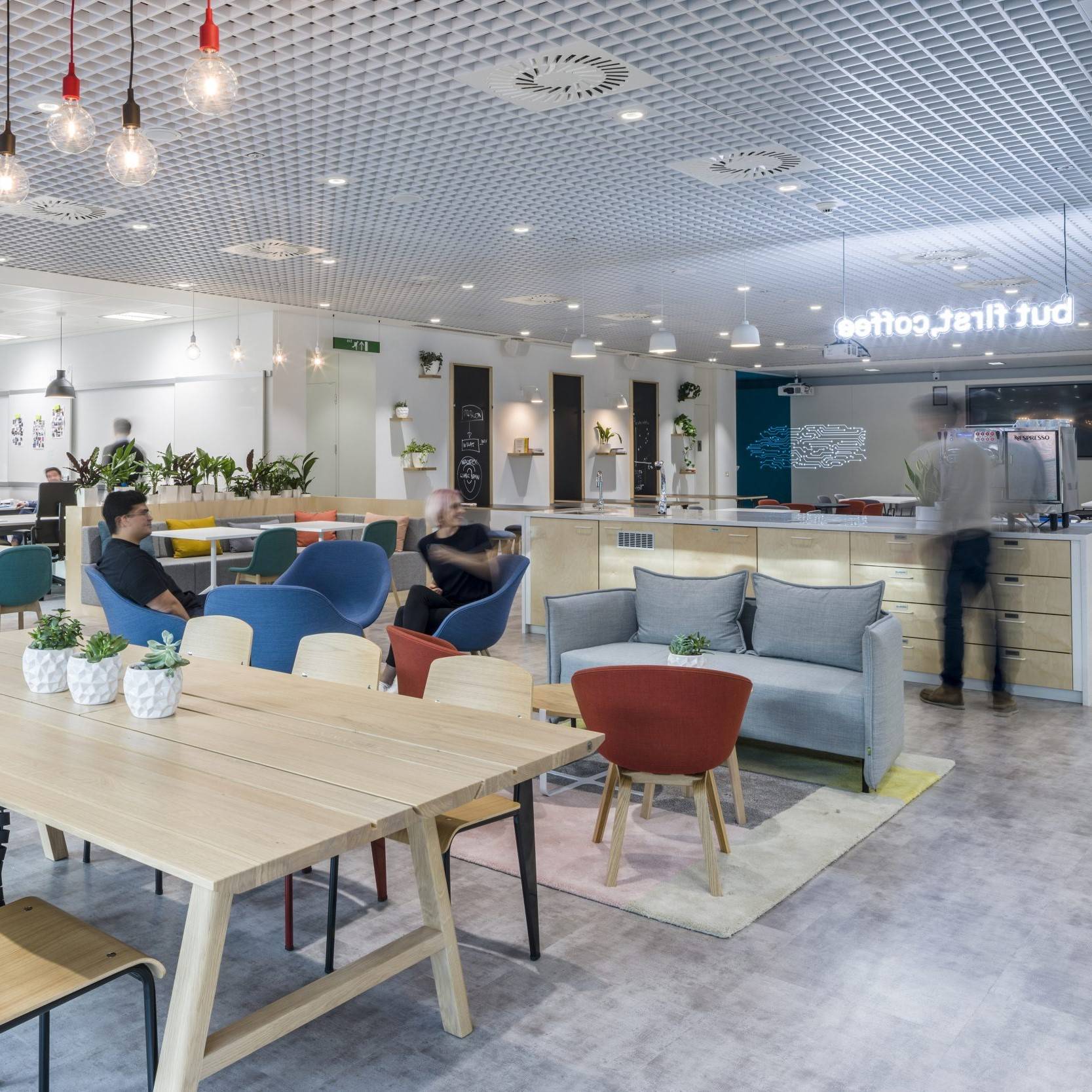July 4, 2018
Podcast: The British new wave and the evolution of the workplace
 In this podcast I talk to Mark Eltringham about British music, which leads to a discussion about bands from the early days of new wave in Liverpool, including Echo & The Bunnymen. The evolution of music serves as a metaphor which leads to a conversation about the history of the workplace where Mark shares his perspective on some of the founding thought leaders in our modern sector. I ask him about today’s places of work and Mark references a recent report from Chris Hood of AWA, Kate Lister of Global Workplace Analytics and Haworth while also sharing some research provided by Leesman Index. We talk about the blurring of the lines and need for collaboration across departments inside organizations, the relationship between facilities management and workplace as a whole, while also discussing the controversy in the UK about the future of the FM sector.
In this podcast I talk to Mark Eltringham about British music, which leads to a discussion about bands from the early days of new wave in Liverpool, including Echo & The Bunnymen. The evolution of music serves as a metaphor which leads to a conversation about the history of the workplace where Mark shares his perspective on some of the founding thought leaders in our modern sector. I ask him about today’s places of work and Mark references a recent report from Chris Hood of AWA, Kate Lister of Global Workplace Analytics and Haworth while also sharing some research provided by Leesman Index. We talk about the blurring of the lines and need for collaboration across departments inside organizations, the relationship between facilities management and workplace as a whole, while also discussing the controversy in the UK about the future of the FM sector.









 A major global report has revealed a lack of confidence in data is limiting corporate success in the emerging era of robotics and automation. The global research launched by Qlik, has revealed an escalating skills gap preventing business decision-makers asking the right questions of data and machines. Despite
A major global report has revealed a lack of confidence in data is limiting corporate success in the emerging era of robotics and automation. The global research launched by Qlik, has revealed an escalating skills gap preventing business decision-makers asking the right questions of data and machines. Despite 
 The digital era, ageing populations, skills shortages, and unpredictable political and economic contexts are persuading multinationals to focus more on mobile talent, new ways of working and assessing the cost of expatriate packages for international employees that are critical to the future of work. This is according to Mercer’s 24th annual Cost of Living Survey which reveals that factors such as instability of housing markets and fluctuating inflation, currencies and prices for goods and services, are impacting the cost of doing business in various cities around the world. UK cities have significantly risen in the ranking this year.
The digital era, ageing populations, skills shortages, and unpredictable political and economic contexts are persuading multinationals to focus more on mobile talent, new ways of working and assessing the cost of expatriate packages for international employees that are critical to the future of work. This is according to Mercer’s 24th annual Cost of Living Survey which reveals that factors such as instability of housing markets and fluctuating inflation, currencies and prices for goods and services, are impacting the cost of doing business in various cities around the world. UK cities have significantly risen in the ranking this year. 


 Business Secretary Greg Clark proposed new laws in Parliament yesterday (June 11th) that new large firms will have to justify their chief executives’ salaries and reveal the gap to their average UK worker. It means that for the first time, UK listed companies with more than 250 UK employees will have to disclose and explain this difference – known as ‘pay ratios’ – every year. However, according to data published today by the Chartered Management Institute (CMI) and
Business Secretary Greg Clark proposed new laws in Parliament yesterday (June 11th) that new large firms will have to justify their chief executives’ salaries and reveal the gap to their average UK worker. It means that for the first time, UK listed companies with more than 250 UK employees will have to disclose and explain this difference – known as ‘pay ratios’ – every year. However, according to data published today by the Chartered Management Institute (CMI) and 

















June 12, 2018
Keeping people at the heart of the modern workplace
by Ryan Anderson • Comment, Technology, Workplace design
(more…)